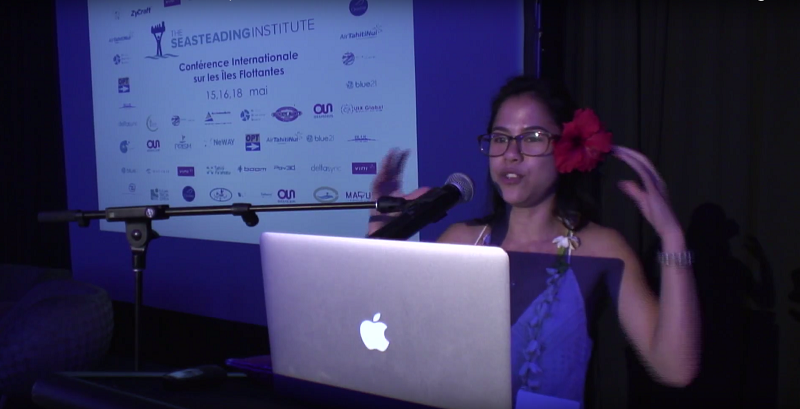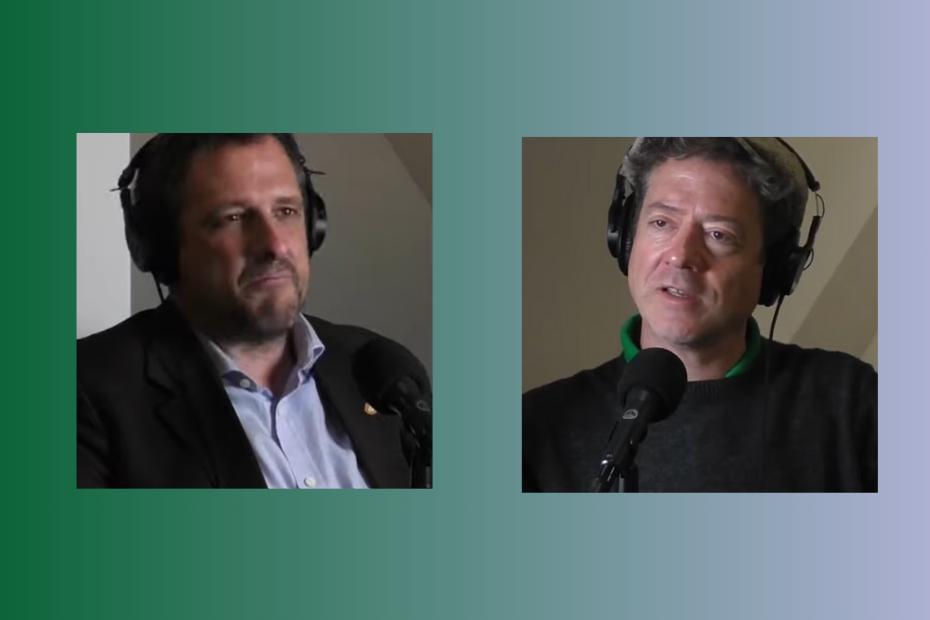I’m eager to share these next three talks which reveal deeper layers of the Polynesian view on seasteading.
Alexandrine’s talk makes me want to cry. It’s a perfect example of the heartfelt sincerity of Polynesians which is evident in everyone you meet, from the President to the people. They call it mana.
The next two Polynesian talks are in French. Our volunteers immediately translated both to provide English subtitles. I’m very grateful for that.
Lenick presents her research on floating communities around the world and addresses how innovations in Amsterdam can be applied in Tahiti. Pascal, who proposed floating islands in 2004 and volunteered to MC the event, shows how traditional Pacific islanders advanced sophisticated technologies of biomimicry which will inform our floating islands.
I found all these talks surprising and illuminating:
“I will present my Master’s thesis about feasibility of floating architecture in French Polynesia…
“No structure exists to accommodate future climate refugees in Polynesia…I think that Polynesia is particularly vulnerable to the rise of the sea level, and since I am from Polynesia, it is a problem that is very close to my heart…
“I am convinced that the integration of expertise among each of the actors— international, local, scientific, political, or administrative— including environmental specialists, architects, artists— will make this project a success, right from the design phase of the project.”

Pascal Erhel Hatuuku Culture, Tourism and Environment Consultant Polynesian Tradition Facing Climate Change
“We Polynesians are certainly a people of the sea, the first seasteaders…By observing seabirds dipping to recover their fish, the Marquesans calculated the coefficient of penetration in the water of the “head of bird” and thus adapted the paddle…The Polynesians invented the meridians and parallels long before the West developed the chronometer…
“As they settled in the islands they discovered, our ancestors repeatedly showed themselves to be innovative. They also faced the same modern issues: demographic growth, pressure on ecological resources, climate change. They succeeded in overcoming them through their adaptability and rigorous discipline within the community, allowing them to develop specific visions of the management of time and space.
“These values, symbols, and concepts are what we want to revive and promote, to reconcile traditional and contemporary Polynesian societies.”



